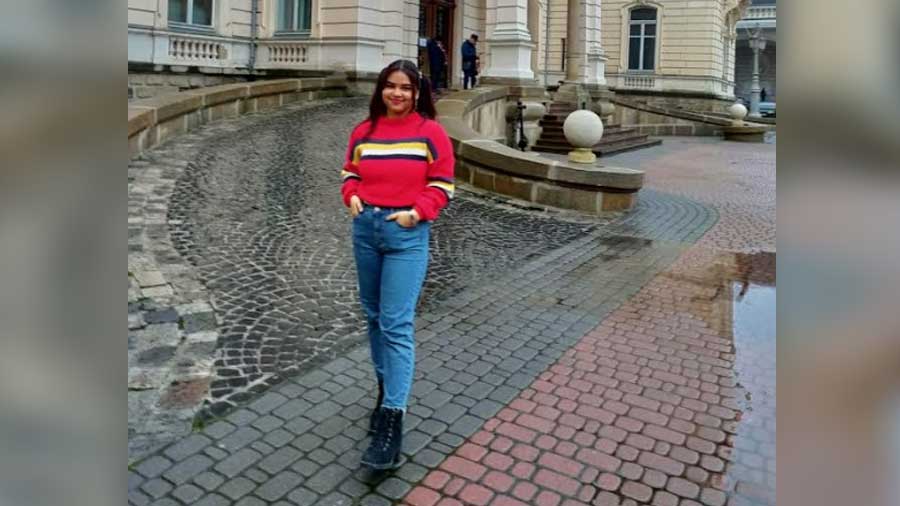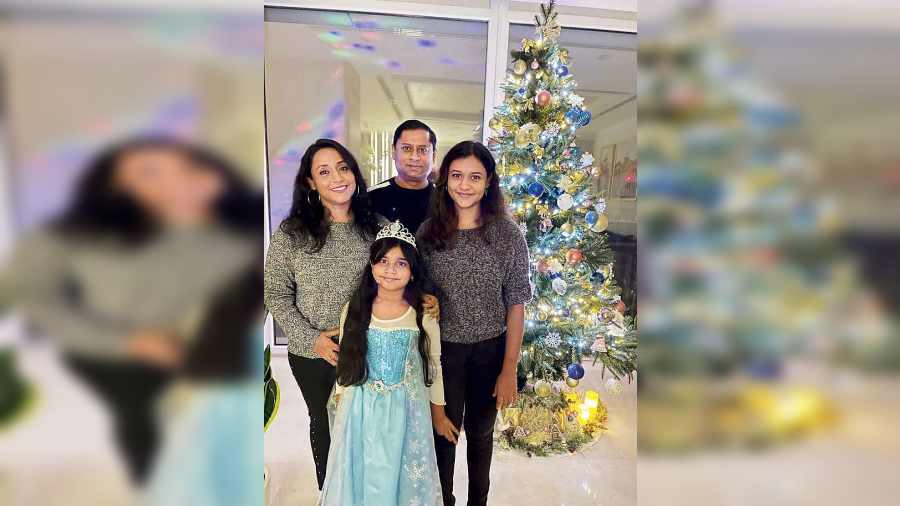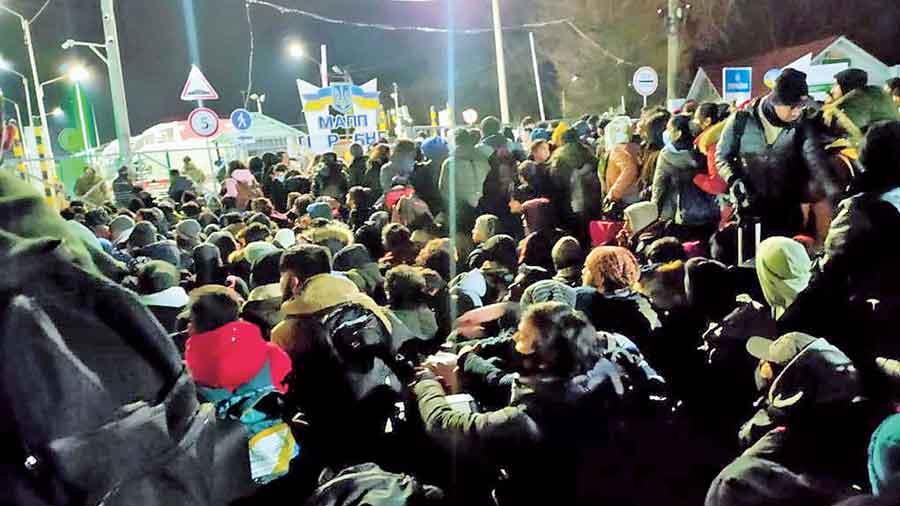Fleeing the advancing Russian army, Priyanshi Pal, a medical student from Kolkata, finally crossed the Ukrainian border to reach Suceava town on the Romanian side of Ukraine-Romania border on Monday, February 28. The gruelling journey — first by bus and then on foot — began on February 26 at Ukraine’s Vinnytsia. The day before, My Kolkata had reported how the fourth-year student at the Vinnytsia National Medical University was stuck in the town, which is about 200km south-west of Ukraine’s capital, Kyiv, along with other students from India. Still on the run and waiting to board the bus that will take Pal to the relative safety of Bucharest, she sent her dispatch from Ground Zero to My Kolkata.
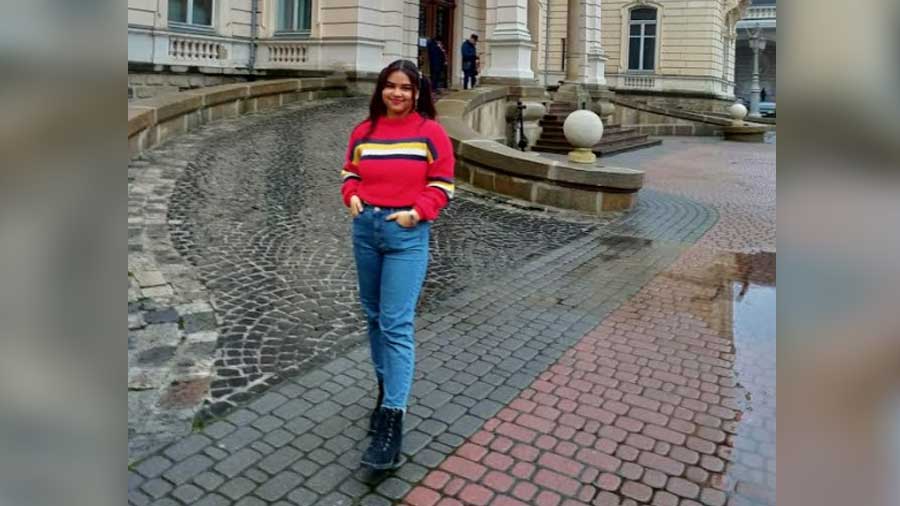
Priyanshi Pal
I am on the road for two days. We started from Vinnytsia on February 26, the day before yesterday. My friends and I got into a Volvo bus and started for the border, carrying in our bags enough dry food and water to last us two days. The bus was filled with Indian students, about 50 of them. We paid Rs 5,000 for the ride to the border.
It took 12 hours to reach Chernivtsi, a town near the border point of Porubne. On a normal day, the journey from Vinnytsia to Chernivtsy would take between four and five hours. But the bus moved very slowly. Everyone was fleeing the country; there were traffic jams.
We were fortunate that nothing bad happened during the journey. We were very scared. There were reports of bombing from the northern and eastern parts of Ukraine. Being in the western part of Ukraine, we were probably safer.
But the bus could not drive up to the border. The highway was packed and we had to get down at Chernivtsi. It was bitter cold outside. Thousands of people were stranded without food or shelter. The local church gave us some food.
I now realise why we were advised earlier to not go to the Romanian border. There were notifications from Romania and Poland. The notification from Romania told us not to come to Romania as there were a lot of students trying to enter the country. People were falling sick as they waited their turn to cross the border.
But we were too scared to stay back in Ukraine. The situation in Vinnytsia was turning out to be like that of a civil war. So we decided to leave the town and move towards Ukraine’s western border. When the bus could not proceed after the 12-hour journey to Chernivtsi, we got down. The chilly wind hit us hard immediately. We were, however, determined to walk the 12km to the border.
Snow, stampedes and firing
The border crossing was a mess. Thousands of people — Indians, Egyptians, Ukrainian and many other nationalities, all feeling the advancing Russian army — had already gathered. We had sent all the details to the Indian embassy in Kyiv but there was no one to take us through the immigration process.
With the temperature below zero degrees Celsius, it started snowing; and there was no shelter or food. A few of us located a church and found that its members were distributing food and water. I also managed to get a tent for the night. I am not sure who gave us the tent; it could be the Ukrainian army people, or maybe the church. The night was horrible, made worse by the uncertainty about crossing the border into Romania.
Scuffles broke out between the refugees and the border guards on a few instances. There were all these thousands of desperate people, all wanting to cross the border at the same time. There was a lot of shouting, occasional fights and stampedes. It was very unpleasant. I also heard the army firing in the air to control the crowd. Thankfully, no one was hurt.
Home in a stadium
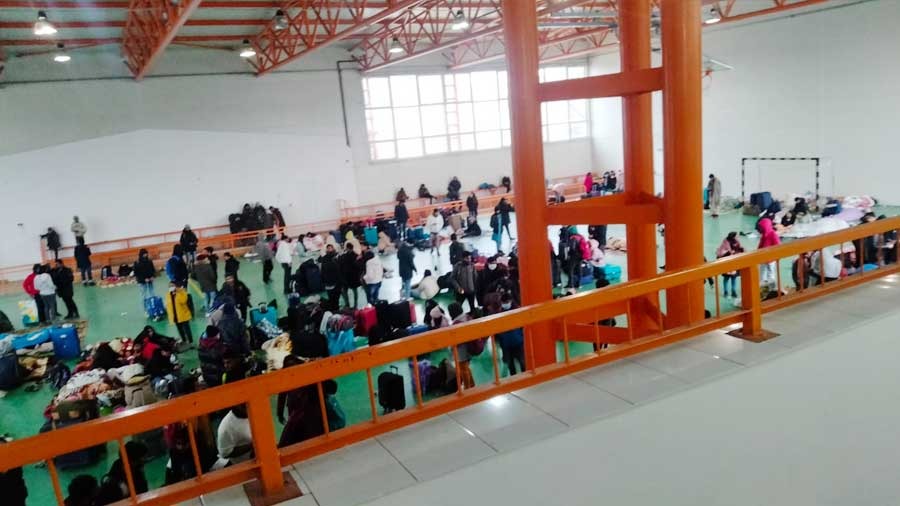
The basketball stadium turned relief camp at Romania's Suceava town where Priyanshi stayed
I stood in the line for nearly eight hours before I could finally cross the border to enter Romania. around 4 in the morning. It took a lot of time to get through.
I am now at Suceava, which is in Romania. We have been housed inside a basketball stadium which has been converted to a transit camp. We have been given food, water and blankets. Unlike last night, there is at least a roof over my head. We have been looked after well. There are Romanian volunteers who are manning the camp. I am told the Indian and Romanian governments are jointly running the facility.
I feel safer now, but there is still this niggling concern and anxiety. I have heard that Putin has threatened all the countries who are helping Ukraine, including Romania and Poland.
I have just been called to board a bus to Bucharest. The Indian embassy has organised these buses to take us to Bucharest. It is a nine-hour journey from Suceava. From Bucharest I will take a flight to India — to Mumbai, or maybe Delhi.
Before I am back home.
(As narrated to Sourabh Sen)
